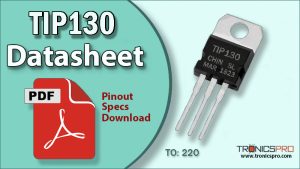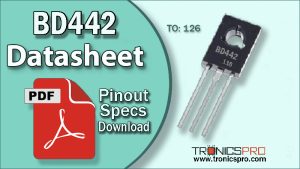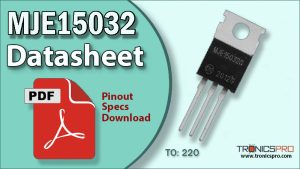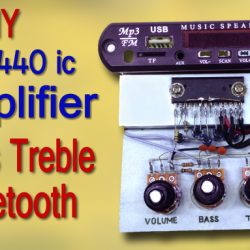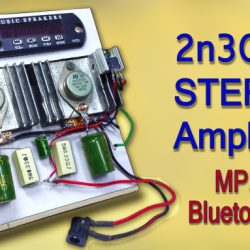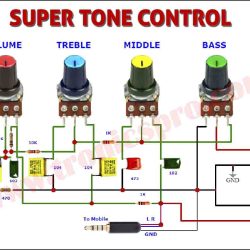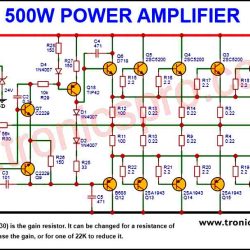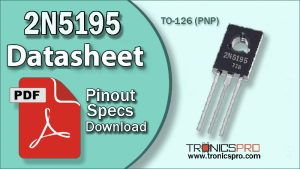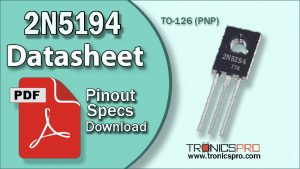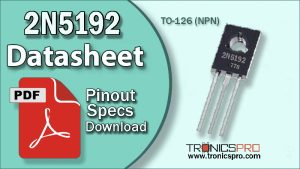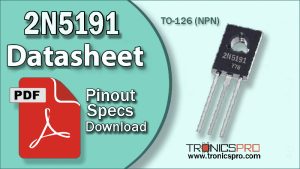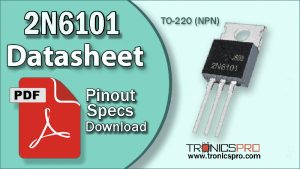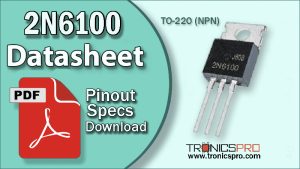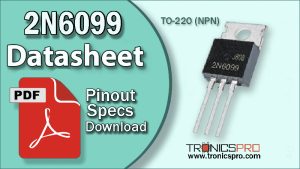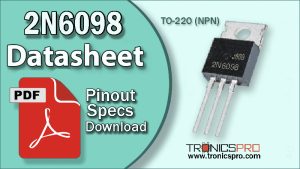The 2N5323 transistor is a silicon PNP bipolar junction transistor (BJT) designed for medium-power amplification and switching applications. Built in a TO-39 metal-can package, it offers high thermal efficiency and mechanical strength. The 2N5323 pinout follows the Emitter–Base–Collector (E–B–C) configuration, making it easy to integrate into circuits designed for complementary pairs with NPN transistors such as the 2N5321.
With a collector-emitter voltage (Vce) rating of –50 V, collector-base voltage (Vcb) of –75 V, and a collector current (Ic) of –2 A, the 2N5323 PNP transistor can dissipate up to 10 W of power. It is commonly used in audio driver stages, voltage regulators, and switching circuits that require medium current handling and balanced amplification.

Introduction to 2N5323 PNP Transistor
The 2N5323 is the PNP complementary pair to the 2N5321 NPN transistor. Both are designed to operate together in push-pull amplifier stages and class AB driver circuits, offering excellent linearity and low crossover distortion.
This transistor’s TO-39 metal can ensures reliable heat transfer, allowing operation in demanding industrial and audio applications. Its consistent DC current gain and robust junction structure make it ideal for applications that require moderate current and voltage tolerance with long-term reliability.
2N5323 PNP Transistor

Pinout of 2N5323

Pin Configuration of 2N5323 Pinout
| Pin# | Pin Name |
|---|---|
| 1 | Emitter |
| 2 | Base |
| 3 | Collector |
Key Features of 2N5323 Transistor
- Silicon PNP transistor for general-purpose medium-power circuits
- TO-39 metal can package for superior heat dissipation
- Complementary to 2N5321 NPN transistor
- High breakdown voltage and stable current gain
- Suitable for amplification and switching operations
- Reliable performance under thermal stress
2N5323 Transistor Datasheet and Specifications
- Transistor Type: PNP Silicon
- Collector-Emitter Voltage (Vce): –50 V
- Collector-Base Voltage (Vcb): –75 V
- Emitter-Base Voltage (Veb): –5 V (typical)
- Collector Current (Ic): –2 A
- Total Power Dissipation (Ptot): 10 W
- DC Current Gain (hFE): 30 – 120 (typical range)
- Transition Frequency (fT): 50 MHz (typical)
- Junction Temperature (Tj): –65 °C to +200 °C
- Package Type: TO-39 Metal Can
- Pin Configuration: Emitter – Base – Collector (E–B–C)
Equivalent and Alternative Transistors
The 2N5323 can be replaced by several medium-power PNP transistors with similar ratings, including:
- 2N2907A – PNP, TO-18, 60 V, 600 mA
- BD136 – PNP, TO-126, 45 V, 1.5 A
- 2N4033 – PNP, TO-39, 60 V, 800 mA
- MJE2955 – PNP, TO-3, 60 V, 10 A
- 2N2905A – PNP, TO-39, 60 V, 800 mA
When selecting replacements, ensure matching voltage and current ratings for proper circuit operation.
More Circuit Layouts

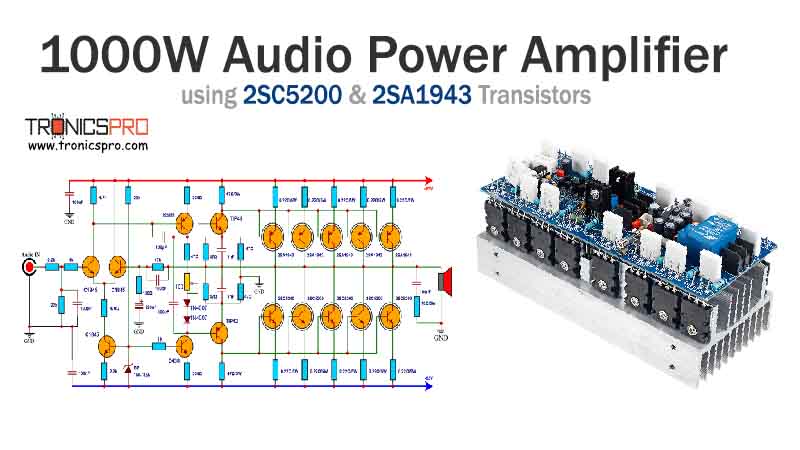
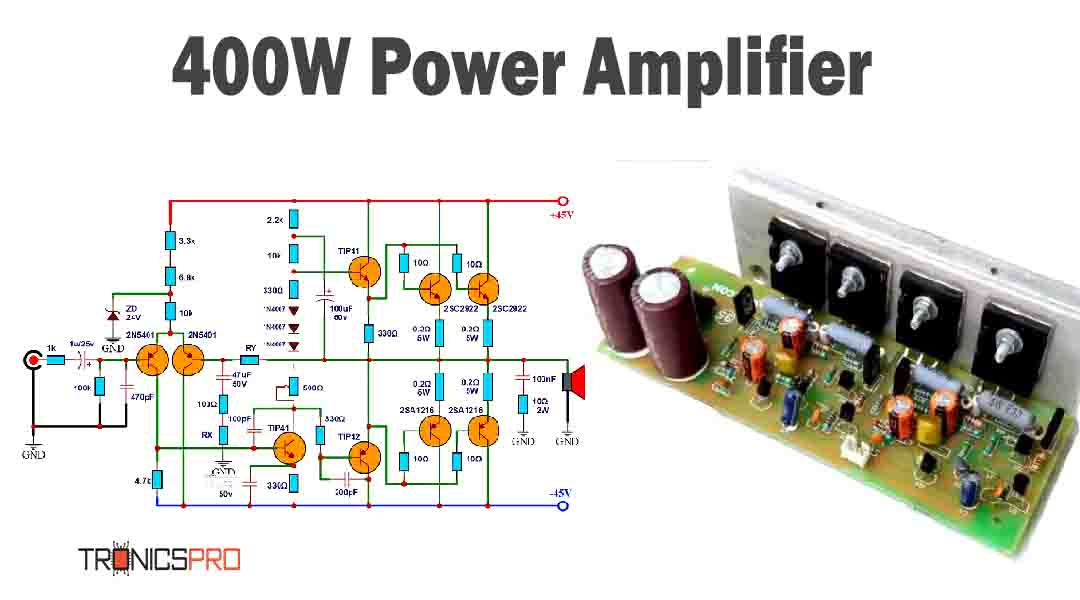
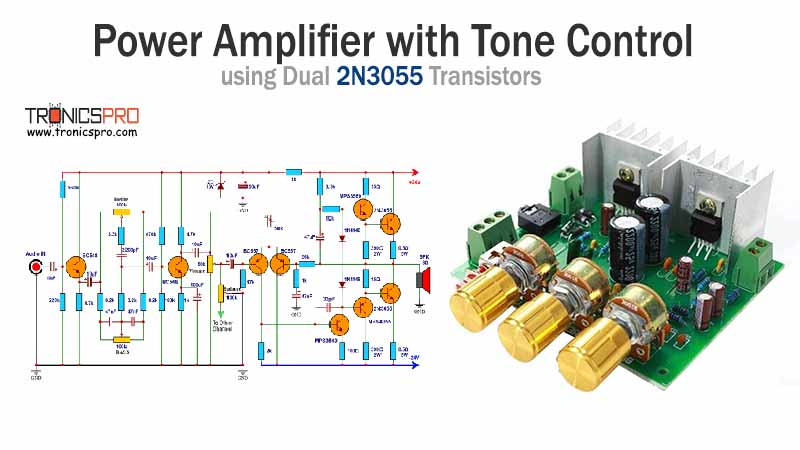
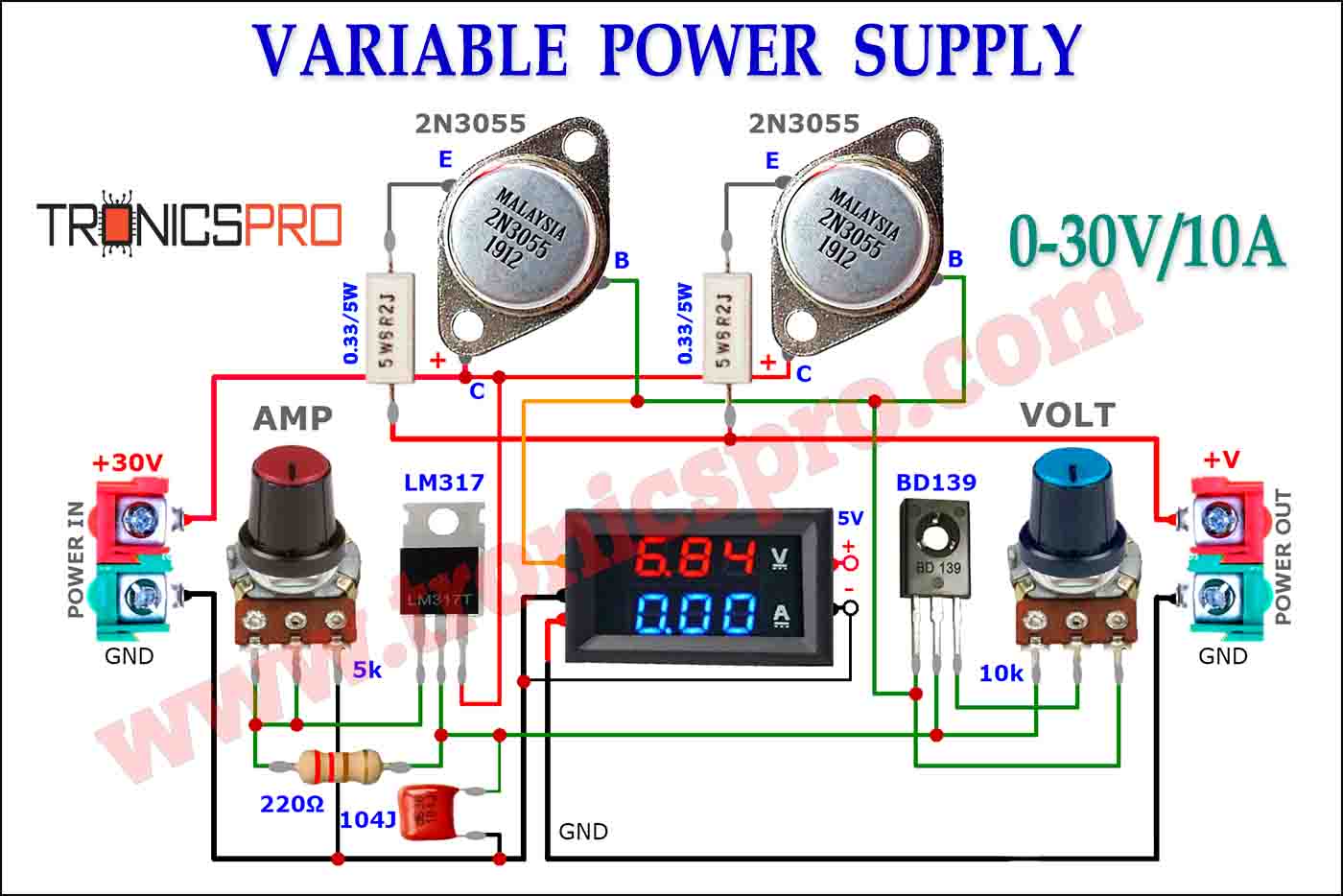
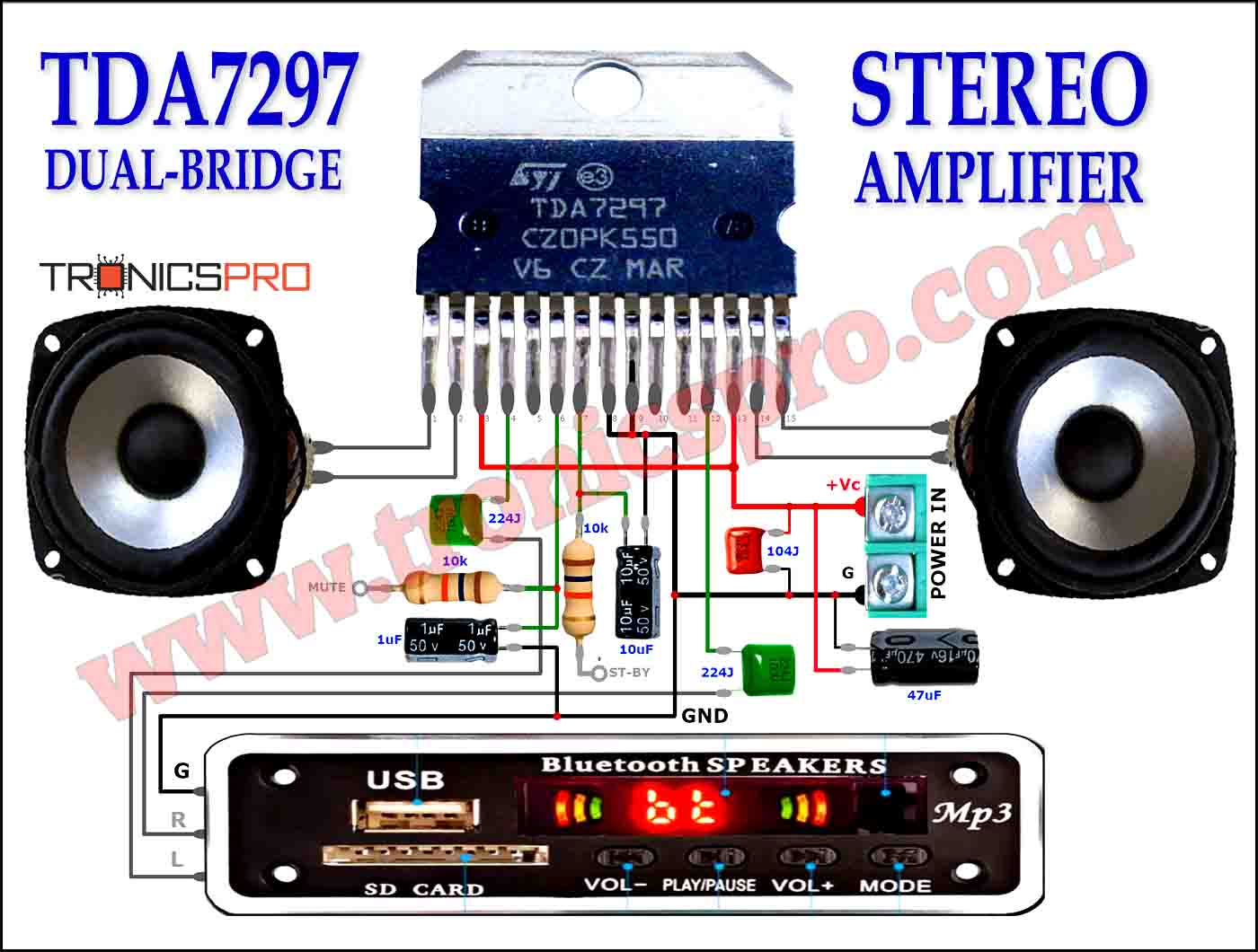
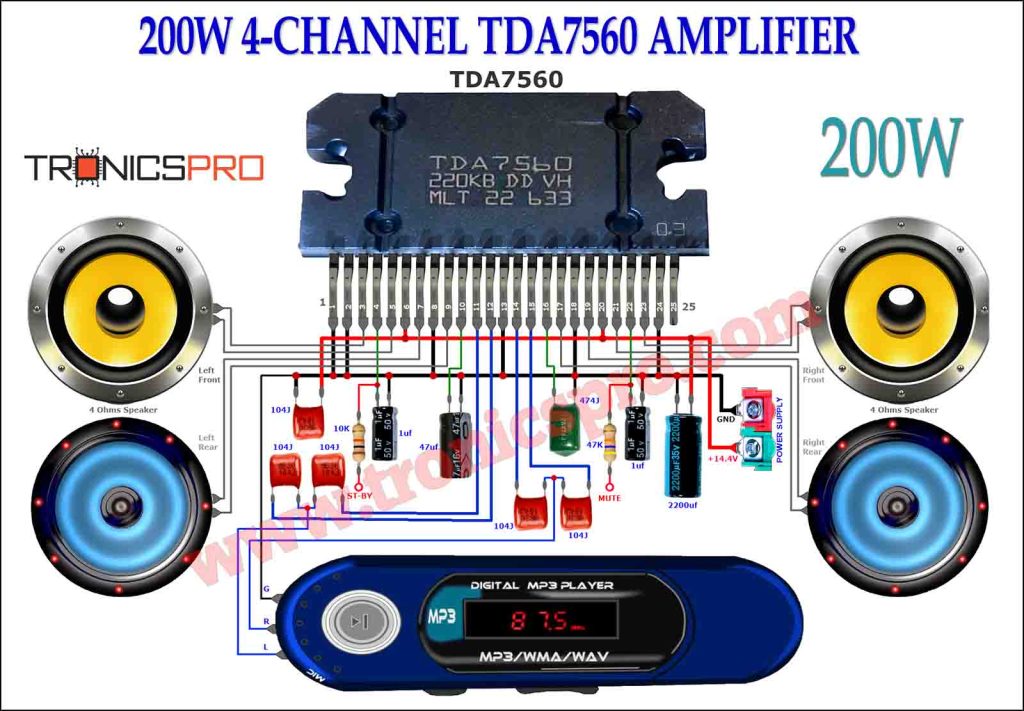
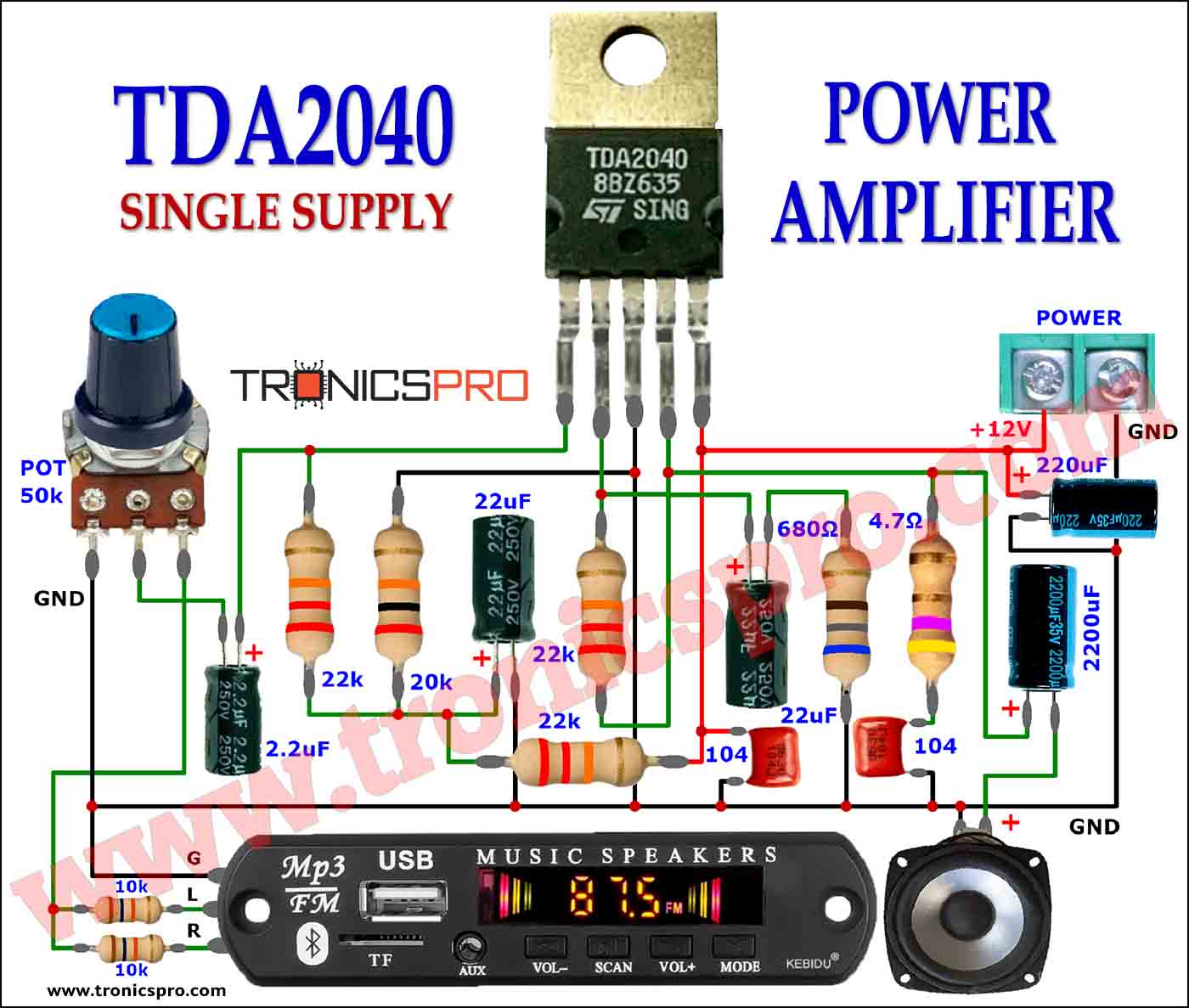
Applications of 2N5323 Transistor
The 2N5323 PNP transistor is widely used in medium-power circuits such as:
- Push-pull amplifier stages (paired with 2N5321)
- Audio power driver circuits
- Voltage regulation and stabilization systems
- Switching and control modules
- Signal and load amplification
- Industrial automation controls
Because of its balanced gain and reliable power capacity, it is an excellent choice for linear and low-distortion amplification in analog systems.
Working Principle of 2N5323 Transistor
The 2N5323 operates as a PNP bipolar transistor, meaning it conducts when the base is made more negative relative to the emitter. A small current flowing into the base controls a much larger current flowing from the emitter to collector.
In switching applications, the transistor alternates between cutoff (OFF) and saturation (ON) states, while in amplifier configurations, it operates in the active region, allowing controlled signal amplification.
When used with its complementary transistor, the 2N5321 NPN, it forms an efficient push-pull amplifier pair with symmetrical current conduction and reduced distortion.
NPN Complementary Transistor
The 2N5321 NPN transistor is the complementary pair of the 2N5323 PNP. Both share identical voltage, current, and power ratings—50 V, 75 V, 2 A, and 10 W—but opposite electrical polarities.
This complementary relationship allows designers to create balanced, high-fidelity amplifier circuits and power stages that deliver clean output with improved efficiency and reduced distortion.
Comparison Summary: 2N5323 vs 2N5321
Although both transistors share similar electrical ratings, they differ in polarity and current direction:
- 2N5323 is a PNP transistor, activated when the base is negative relative to the emitter.
- 2N5321 is an NPN transistor, activated when the base is positive relative to the emitter.
When used together, they form complementary push-pull pairs, commonly found in audio driver, output amplifier, and control circuits for efficient current handling and distortion reduction.
Advantages of 2N5323 Transistor
- High voltage capacity (up to 75 V Vcb)
- Durable TO-39 metal package
- Good thermal performance and reliability
- Complementary compatibility with 2N5321
- Linear gain response for low-distortion audio
Conclusion
The 2N5323 PNP transistor is a reliable, medium-power device with excellent performance in amplification and switching applications. Offering –50 V collector-emitter voltage, –2 A collector current, and 10 W power dissipation, it is perfectly matched to the 2N5321 NPN for complementary circuit designs.
Its E–B–C pin configuration, metal TO-39 package, and stable electrical behavior make it ideal for audio amplifiers, voltage regulators, and control circuits requiring efficiency and long-term durability.
Datasheet & Pinout of 2N5323 PNP Transistor
Click the following Button to download the datasheet of 2N5323 Transistor :
More projects, You may like:
- Video Transmitter DIY Homemade FM Radio Transmitter
- Adjustable Power Supply DIY Battery Charger
- 12V-220V 500 Watt inverter DIY Homemade
- MPPT Solar Charge Controller DIY Homemade
- DIY LA4440 bass amplifier homemade
For more project and circuit diagrams, you can go through the Schematics in the main menu where you can find many interesting projects and circuit diagrams like audio amplifier circuits, voltage booster circuit, battery charger circuit and timer circuits etc., which are all beginner circuit projects. Feel free to check them out!

Thank you for visiting the article.


